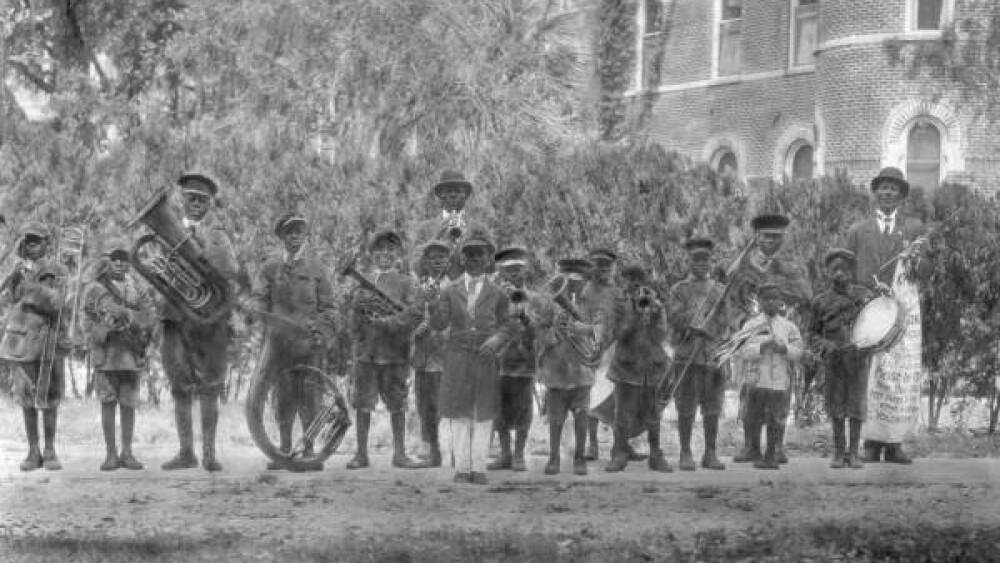Come on, Charleston, why don’t we paint the town – and all that jazz? Whether you’re an aficionado of musicals like Chicago or just heard your first jazz performance at Charleston’s own Forte Jazz Lounge, you’re most likely familiar with that smooth sound that stemmed from ragtime rhythms + blues. 🎷
One thing even the biggest jazz fans might not be aware of, however, is one local band that greatly contributed to the country’s jazz scene in the 1900s.
The Jenkins Orphanage Band was created by Reverend Daniel Jenkins in hopes of providing more income for his Charleston-based orphanage. The Jenkins Orphanage – established in 1891 – was the only out of S.C.’s 10 institutes that provided refuge for African American youths at the time. It was originally located next to the Old Jail (660 King St.) and relocated to the Old Marine Hospital (20 Franklin St.) two years later.
Jenkins believed that teaching the children how to play instruments would not only provide them with entertainment and potential revenue, but would also teach them valuable skills. He began asking locals for instrument donations + collected old Citadel uniforms for the children to wear.
In just two years’ time, this small band of orphans was playing all over the U.S. + the world. What began as playing on street corners turned into playing for both President Roosevelt’s + President Taft’s inaugurations, as well as traveling more than once to play for the Queen of England. In 1904 they were a major act at the St. Louis World’s Fair, and in 1914 played at the Anglo-American Exposition in London.
The band became so popular that non-orphans began auditioning for a part. Children from other countries were even sent to Jenkins Orphanage in hopes of joining the ensemble.
From worldwide concerts to appearing in Broadway performances, the Jenkins Orphanage Band played a major role in the 1900s jazz scene, and produced widely known jazz artists such as Cat Anderson (who played trumpet in Duke Ellington’s orchestra) + Freddie Green (a lead jazz-guitarist of the Count Basie Orchestra).
The band, however, saw an eventual decline due to the influx of new residents + a bank collapse that severely hurt the orphanage’s funding. The band lasted until the 1950s until it diminished entirely.
The Jenkins Institute for Children still remains at a newer location in North Charleston (3923 Azalea Dr.), and currently cares for about 20 girls. Leaders of the institute are discussing plans to develop a historical center in hopes of preserving the orphanage’s history + legacy, not only to jazz but to the Charleston community as a whole.



